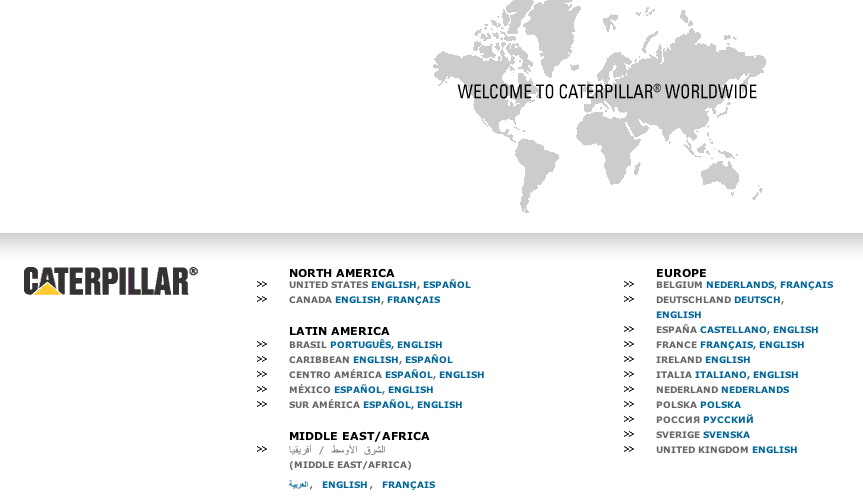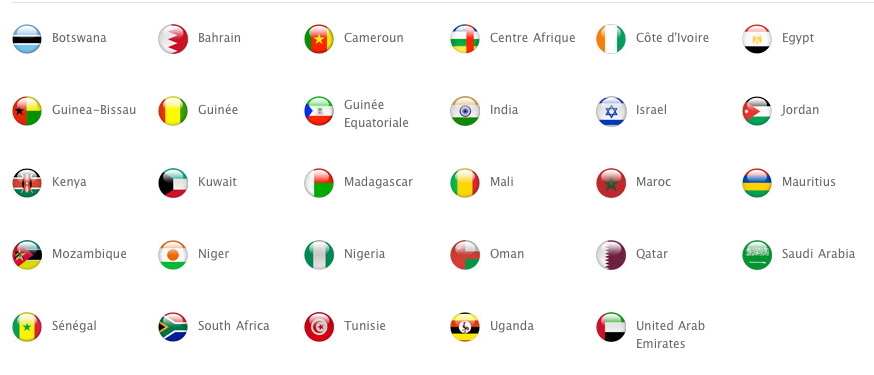After three weeks of analyzing Web sites for the 2010 Web Globalization Report Card, a number of interesting trends are coming together, and I thought I’d share a couple of them with you…
Geolocation is gaining momentum
PricewaterhouseCoopers is now using geolocation to improve global content delivery. So too is Audi. And we have yet to detect a company that has stopped using it. We’ve advocated geolocation for many years, but not before having a solid visual global gateway in place, which many companies do not yet have.
We still love the Caterpillar gateway:
Companies keep adding languages
It’s looking as if we’ll see an average increase in number of languages supported across all web sites studied so far. And this will be significant because a number of companies have actually reduced the number of languages they support, also a notable trend.
Hotels.com has more than doubled the number of languages it supports, to more than 30. Apple also boosted its global reach over the past 18 months, a sign of its global ambitions.
And now back to the web sites. Still more to analyze…stay tuned.



The Caterpillar gateway is clean and the way they regionalized their categories seem to make sense to their business. The problem I see with this and most gateways, which I’ve been grappling with for a client site as well, is that the page is still anglo-centric since the headings and welcome messages are in English. How can such a gateway be presented more neutrally? Adding more languages for the headers? Placing it on a map to describe the region?